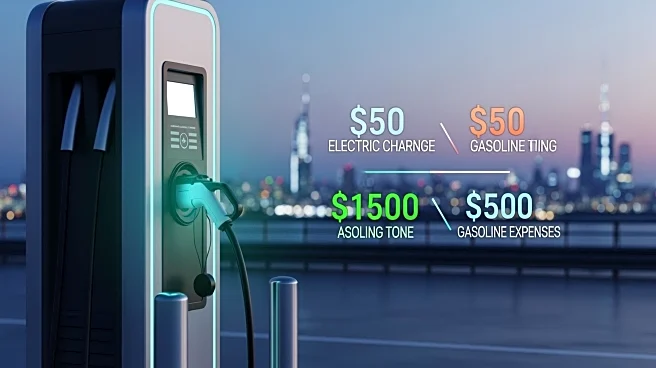What's Happening?
A CNET analysis has revealed that charging electric vehicles (EVs) is generally cheaper than fueling gas-powered cars, based on current U.S. averages. The study compared monthly costs for driving 1,250
miles, finding that EV charging costs $73, while gasoline expenses amount to $159. Factors such as electricity prices, vehicle efficiency, and charging methods influence these costs. Home charging during off-peak hours is identified as the most cost-effective method, while public charging stations may incur higher expenses. The analysis highlights the potential savings for EV owners, despite concerns about installation costs and public charging fees.
Why It's Important?
The findings emphasize the economic advantages of EV ownership, particularly in terms of fuel savings. As gasoline prices remain volatile, EVs offer a more stable and potentially cheaper alternative for consumers. This cost benefit could drive increased adoption of EVs, influencing the automotive industry and energy markets. The analysis also underscores the importance of infrastructure development, as accessible and affordable charging options are crucial for widespread EV adoption. Policymakers and industry stakeholders may need to address these infrastructure challenges to support the transition to electric mobility.
What's Next?
The analysis may encourage more consumers to consider EVs as a viable and cost-effective transportation option, potentially accelerating the shift towards electric mobility. Industry stakeholders may focus on expanding charging infrastructure and offering incentives to support EV adoption. Policymakers could explore measures to promote sustainable transportation, such as tax credits for EV purchases or investments in renewable energy sources. The findings may also prompt discussions about the long-term implications of increased EV usage on energy consumption and environmental impact.








